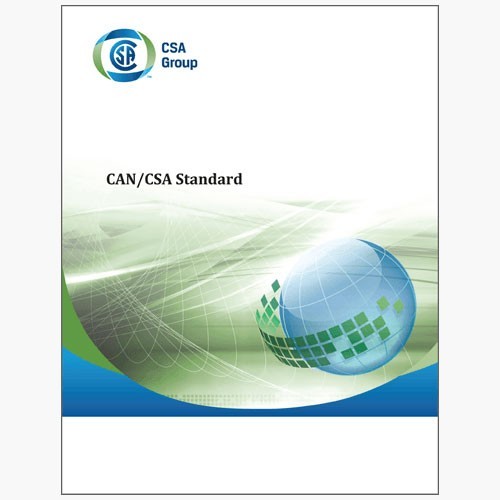TOLL FREE · 1-888-361-0003 Our Customer Support is ready to help!

Formats Available:
Online,
Print
Product Overview
CAN/CSA-ISO/IEC 40270:18
CSA Group Information Technology — W3C Web Services Policy 1.5 — Framework (Adopted ISO/IEC 40270:2011, first edition, 2011-09-01)
Total
As low as
$40.00
More About This Product
Description
Preface Standards development within the Information Technology sector is harmonized with international standards development. Through the CSA Technical Committee on Information Technology (TCIT), Canadians serve as the SCC Mirror Committee (SMC) on ISO/IEC Joint Technical Committee 1 on Information Technology (ISO/IEC JTC1) for the Standards Council of Canada (SCC), the ISO member body for Canada and sponsor of the Canadian National Committee of the IEC. Also, as a member of the International Telecommunication Union (ITU), Canada participates in the International Telegraph and Telephone Consultative Committee (ITU-T). Abstract The Web Services Policy 1.5 - Framework provides a general purpose model and corresponding syntax to describe the policies of entities in a Web services-based system. Web Services Policy Framework defines a base set of constructs that can be used and extended by other Web services specifications to describe a broad range of service requirements and capabilities. Introduction Web Services Policy 1.5 - Framework defines a framework and a model for expressing policies that refer to domain-specific capabilities, requirements, and general characteristics of entities in a Web services-based system. A policy is a collection of policy alternatives. A policy alternative is a collection of policy assertions. A policy assertion represents a requirement, capability, or other property of a behavior. A policy expression is an XML Infoset representation of its policy, either in a normal form or in its equivalent compact form. Some policy assertions specify traditional requirements and capabilities that will manifest themselves in the messages exchanged (e.g., authentication scheme, transport protocol selection). Other policy assertions have no wire manifestation in the messages exchanged, yet are relevant to service selection and usage (e.g., privacy policy, QoS characteristics). Web Services Policy 1.5 - Framework provides a single policy language to allow both kinds of assertions to be expressed and evaluated in a consistent manner. Web Services Policy 1.5 - Framework does not cover discovery of policy, policy scopes and subjects, or their respective attachment mechanisms. A policy attachment is a mechanism for associating policy with one or more policy scopes. A policy scope is a collection of policy subjects to which a policy applies. A policy subject is an entity (e.g., an endpoint, message, resource, interaction) with which a policy can be associated. Web Services Policy 1.5 - Attachment [Web Services Policy Attachment] defines such policy attachment mechanisms, especially for associating policy with arbitrary XML elements [XML 1.0], WSDL artifacts [WSDL 1.1, WSDL 2.0 Core Language], and UDDI elements [UDDI API 2.0, UDDI Data Structure 2.0, UDDI 3.0]. Other specifications are free to define either extensions to the mechanisms defined in Web Services Policy 1.5 - Attachment [Web Services Policy Attachment], or additional mechanisms not covered by Web Services Policy 1.5 - Attachment [Web Services Policy Attachment], for purposes of associating policy with policy scopes and subjects.
Preface Standards development within the Information Technology sector is harmonized with international standards development. Through the CSA Technical Committee on Information Technology (TCIT), Canadians serve as the SCC Mirror Committee (SMC) on ISO/IEC Joint Technical Committee 1 on Information Technology (ISO/IEC JTC1) for the Standards Council of Canada (SCC), the ISO member body for Canada and sponsor of the Canadian National Committee of the IEC. Also, as a member of the International Telecommunication Union (ITU), Canada participates in the International Telegraph and Telephone Consultative Committee (ITU-T). Abstract The Web Services Policy 1.5 - Framework provides a general purpose model and corresponding syntax to describe the policies of entities in a Web services-based system. Web Services Policy Framework defines a base set of constructs that can be used and extended by other Web services specifications to describe a broad range of service requirements and capabilities. Introduction Web Services Policy 1.5 - Framework defines a framework and a model for expressing policies that refer to domain-specific capabilities, requirements, and general characteristics of entities in a Web services-based system. A policy is a collection of policy alternatives. A policy alternative is a collection of policy assertions. A policy assertion represents a requirement, capability, or other property of a behavior. A policy expression is an XML Infoset representation of its policy, either in a normal form or in its equivalent compact form. Some policy assertions specify traditional requirements and capabilities that will manifest themselves in the messages exchanged (e.g., authentication scheme, transport protocol selection). Other policy assertions have no wire manifestation in the messages exchanged, yet are relevant to service selection and usage (e.g., privacy policy, QoS characteristics). Web Services Policy 1.5 - Framework provides a single policy language to allow both kinds of assertions to be expressed and evaluated in a consistent manner. Web Services Policy 1.5 - Framework does not cover discovery of policy, policy scopes and subjects, or their respective attachment mechanisms. A policy attachment is a mechanism for associating policy with one or more policy scopes. A policy scope is a collection of policy subjects to which a policy applies. A policy subject is an entity (e.g., an endpoint, message, resource, interaction) with which a policy can be associated. Web Services Policy 1.5 - Attachment [Web Services Policy Attachment] defines such policy attachment mechanisms, especially for associating policy with arbitrary XML elements [XML 1.0], WSDL artifacts [WSDL 1.1, WSDL 2.0 Core Language], and UDDI elements [UDDI API 2.0, UDDI Data Structure 2.0, UDDI 3.0]. Other specifications are free to define either extensions to the mechanisms defined in Web Services Policy 1.5 - Attachment [Web Services Policy Attachment], or additional mechanisms not covered by Web Services Policy 1.5 - Attachment [Web Services Policy Attachment], for purposes of associating policy with policy scopes and subjects.
